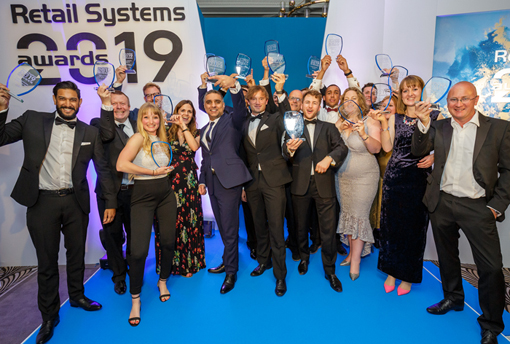The advent of 5G phone networks - promised to be rolled out across the UK from next year - could bring the mobile internet speed and stability required for retailers to really commit to innovative technology projects.
The government is supporting 5G by incorporating it into its Industrial Strategy, having pledged £1 billion towards digital infrastructure, while the bidding process for 5G licences opened to the telecoms industry last year, with testing underway in certain parts of the country.
Research from Barclays Corporate Banking earlier this year suggested that 5G could supercharge the UK economy by up to £15.7 billion per year by 2025 – but the opportunity could be missed because industry leaders still do not know enough about the benefits of investing in the technology.
Meanwhile, a Gartner survey among retail business decision-makers indicated that by next year, 46 per cent of retailers across Europe, Asia and the US plan to deploy either augmented or virtual reality (AR and VR) solutions to meet customer service experience requirements.
The consultancy’s survey also indicated that AR/VR applications of 5G attract the highest expectations for driving new revenue across all use cases and respondents. 5G capabilities can support things like real-time rendering for immersive video, shorter download and set-up times, and extension of shopping experiences beyond stores.
“We expect that the implementation of 5G and AR or VR in stores will transform not only customer engagement but also the entire product management cycle of brands,” said Sylvain Fabre, senior research director at Gartner. “5G can optimise warehouse resources, enhance store traffic analytics and enable beacons that communicate with shoppers’ smartphones.”
Just last week, Huawei, China Mobile and the China Real Estate Association partnered to launch the world's first 5G-connected shopping mall, promising HD video calls, delivery and destination guidance offered by smart robots, artificial intelligence-based face recognition, precise indoor navigation and people flow analysis.
Sal Visca, chief technology officer at digital commerce provider Elastic Path, told Retail Systems that the combination of 5G bandwidth and smart cities means real-time responsiveness will be enabled on networks, so embedded Internet of Things (IoT) devices in cars, for instance, can rely on connections for things like payment processing.
“Commerce is going to be increasingly enveloped around you, with AR being used to alert people to retail promotions and opportunities – telcos are increasingly getting into unified selling, not just e-commerce, but new forms of connection with customers.”
Visca noted that in terms of data privacy, people are willing to give a little to get a truly personalised experience, with last year’s General Data Protection Regulation (GDPR) having increased awareness.
“Retailers just need to make it clear around consent and what they will get back in return – finding that line between creepiness and great personalised experiences.”
Joao Fernandes, chief executive of indoor way-finding app Buzzstreets, said that the 5G rollout will have a huge impact, not just on mobile networks, but on technology advancements in general. “For retailers specifically, 5G will have the most impact on interactive customer experience, as they and employees will have the mobile capability of using real-time AR/VR applications in-store,” he stated.
“I can see more and more retailers shifting their attention to new technologies and looking for relevant technology partners to support them with their transformation,” said Fernandes. “IoT is a very important development area, as with the help of 5G everything will be connected: objects, appliances, sensors, devices and applications.”
Wunderman Thompson Commerce’s head of innovation Naji El-Arifi agreed that in areas such as IoT and self-driving cars, 5G could be hugely empowering.
“However, it is hard to say how large an impact 5G will have on retailers – I would say that the main advantages of 5G will not really be seen or fully taken advantage of by retailers as many of them don’t take advantage of 4G even now.
“What retailers should be asking themselves is how many stores actually need super low latency at a point that is faster than you get on 4G - websites are typically built for the lowest spec devices, not the highest - and the reason for this is that we build websites to be as fast and as low latency as possible is because people are impatient.”
He added that the main place that 5G could be really useful for retailers is in their warehouses.
“For instance, 5G will be really useful for those use cases where you are not near a wired data connection e.g. if you’re a truck or robot, and need super low latency to transmit extremely large data streams,” explained El-Arifi.
Latest News
-
Tesco makes ‘significant strides’ on safety through body worn cameras
-
Flying Tiger Copenhagen appoints new group chief executive
-
Walgreens cuts over 600 jobs after buyout
-
Mango opens first store in Limerick as part of expansion plan
-
eBay and Etsy to buy Depop for $1.2bn
-
REWE opens automated fresh food facility to serve Berlin outlets
Beyond Channels: Redefining retail with Unified Commerce
This Retail Systems fireside chat with Nikki Baird, Vice President, Strategy & Product at Aptos will explore how unified commerce strategies enable retailers to tear down these barriers and unlock new levels of operational agility and customer satisfaction.
The future of self-checkout: Building a system that works for consumers and retailers
In this webinar, industry leaders discussed what the future of self-checkout looks like and how retailers can make the technology work for everyone.
© 2024 Perspective Publishing Privacy & Cookies









Recent Stories